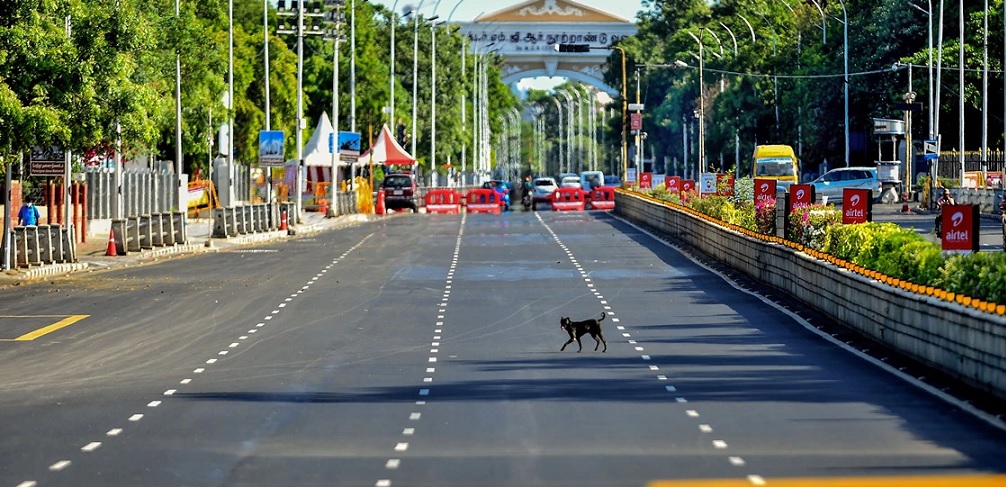Introduction: Chennai Lockdown Latest News: today
Chennai, the capital city of Tamil Nadu, has experienced various phases of lockdowns and restrictions since the onset of the COVID-19 pandemic in early 2020. These measures have been implemented to curb the spread of the virus and protect public health. Over the years, the city has navigated through multiple waves of infections, adapting its strategies accordingly. As of April 2025, Chennai continues to monitor the situation closely, balancing public safety with economic and social considerations.
Table of Contents
Overview of Lockdown Phases in Chennai
Initial Lockdown in 2020
In March 2020, India imposed a nationwide lockdown to combat the emerging threat of COVID-19. Chennai, like other cities, faced stringent restrictions, including the closure of businesses, educational institutions, and public spaces. The lockdown aimed to reduce transmission rates and prepare healthcare infrastructure for the impending challenges.
Subsequent Waves and Lockdowns
As the pandemic evolved, Chennai experienced multiple waves of infections, leading to the re-imposition of lockdowns and restrictions at various intervals. For instance, in June 2020, a significant spike in cases prompted authorities to enforce a strict lockdown in Chennai and neighboring districts. Essential services were permitted, but movement was largely restricted to contain the virus’s spread.
Relaxation and Re-imposition of Restrictions
Between waves, the city witnessed periods of relaxation, allowing economic activities to resume under safety protocols. However, surges in cases often led to the reinstatement of restrictions. For example, in May 2021, Tamil Nadu tightened lockdown measures due to rising infections, limiting vehicular movement and adjusting shop timings. The Greater Chennai Police registered over 3,000 violation cases in a single day, highlighting the challenges of enforcement.
Recent Developments as of April 2025
Current COVID-19 Situation
As of April 2025, Chennai has made significant progress in managing COVID-19. Vaccination drives have been largely successful, with a substantial portion of the population inoculated. The number of active cases has declined, and hospitalization rates have decreased, indicating improved control over the virus.
Lifting of Lockdown Measures
Given the positive trends, the Tamil Nadu government has lifted most lockdown restrictions in Chennai. Businesses, educational institutions, and public spaces operate at full capacity, adhering to standard safety protocols. The emphasis has shifted towards economic recovery and normalization of daily life.
Ongoing Vigilance and Preparedness
Despite the relaxation, authorities remain vigilant. Surveillance systems are in place to detect any resurgence of cases promptly. Healthcare facilities are equipped to handle potential outbreaks, and public awareness campaigns continue to emphasize the importance of hygiene and vaccination.
Impact of Lockdowns on Chennai
Economic Impact
The lockdowns significantly affected Chennai’s economy. Small and medium-sized enterprises (SMEs) faced challenges due to prolonged closures and reduced consumer spending. The tourism and hospitality sectors, vital to the city’s economy, experienced substantial losses. However, government relief measures and digital adoption have facilitated a gradual recovery.
Social and Psychological Impact
Extended periods of isolation and restricted movement led to social and psychological challenges among residents. Mental health issues, including anxiety and depression, became more prevalent. In response, authorities and non-governmental organizations initiated support systems, such as helplines and counseling services, to address these concerns.
Healthcare System Strengthening
The pandemic highlighted the need for a robust healthcare system. Chennai invested in healthcare infrastructure, increasing hospital beds, enhancing oxygen supply, and improving medical staff training. These efforts have strengthened the city’s capacity to manage future health crises.
Lessons Learned and Future Strategies
Importance of Early Intervention
Chennai’s experience underscores the significance of early intervention and decisive action in controlling pandemics. Swift implementation of lockdowns and restrictions proved effective in curbing virus transmission during critical periods.
Community Engagement
Engaging communities in awareness campaigns and preventive measures played a crucial role in managing the pandemic. Local leaders, influencers, and community organizations contributed to disseminating accurate information and encouraging compliance with guidelines.
Digital Transformation
The pandemic accelerated digital transformation across sectors. Remote work, online education, and telemedicine became integral to daily life. Chennai’s adaptability to digital solutions has paved the way for sustained technological advancements in the future.
Conclusion
Chennai’s journey through the COVID-19 pandemic has been marked by resilience, adaptability, and collective effort. The phased implementation and relaxation of lockdowns, guided by public health data, have been central to managing the crisis. As of April 2025, the city stands on a path to recovery, with lessons learned shaping its preparedness for future challenges. Continued vigilance, community engagement, and investment in healthcare infrastructure remain pivotal as Chennai moves forward in the post-pandemic era.


